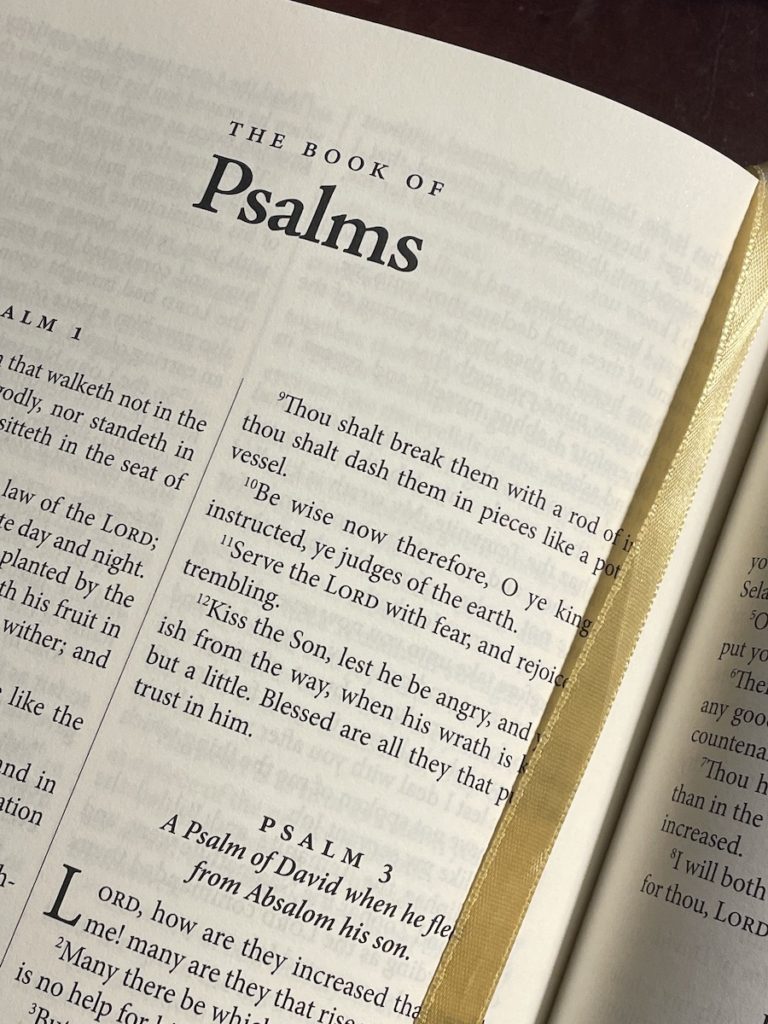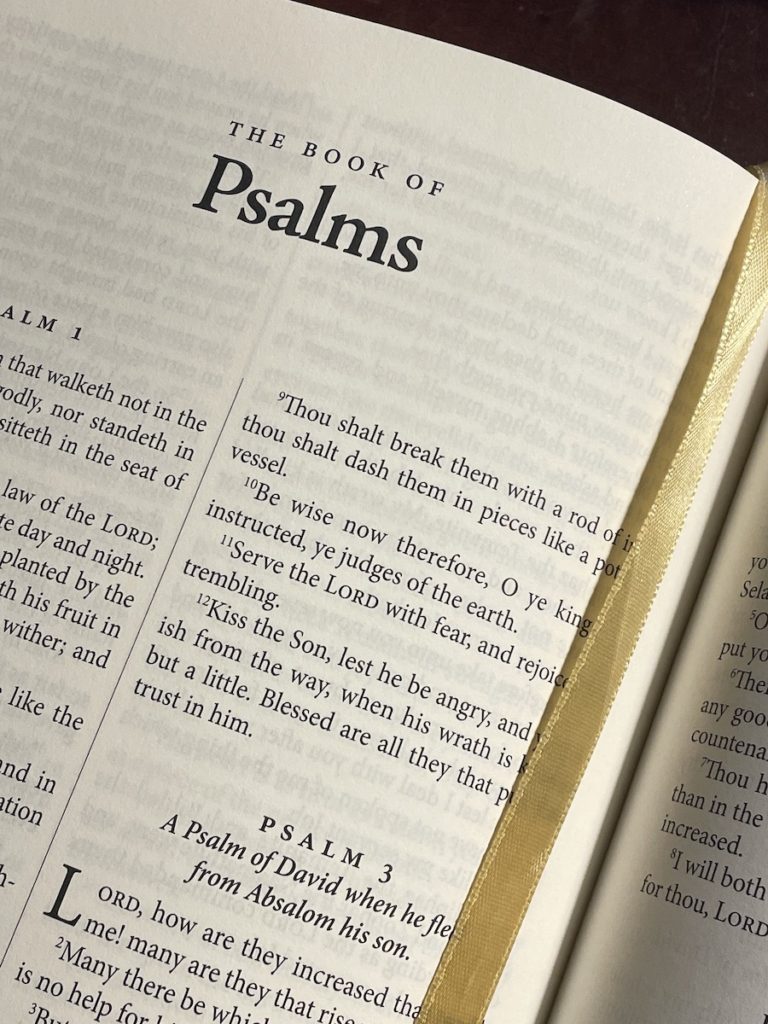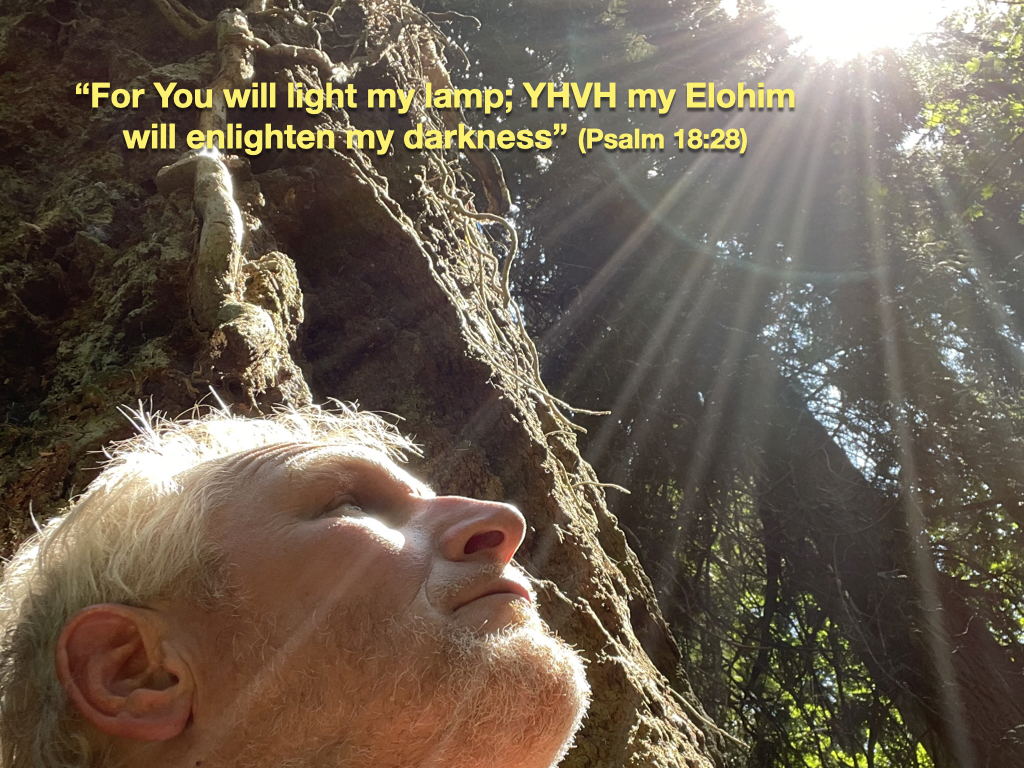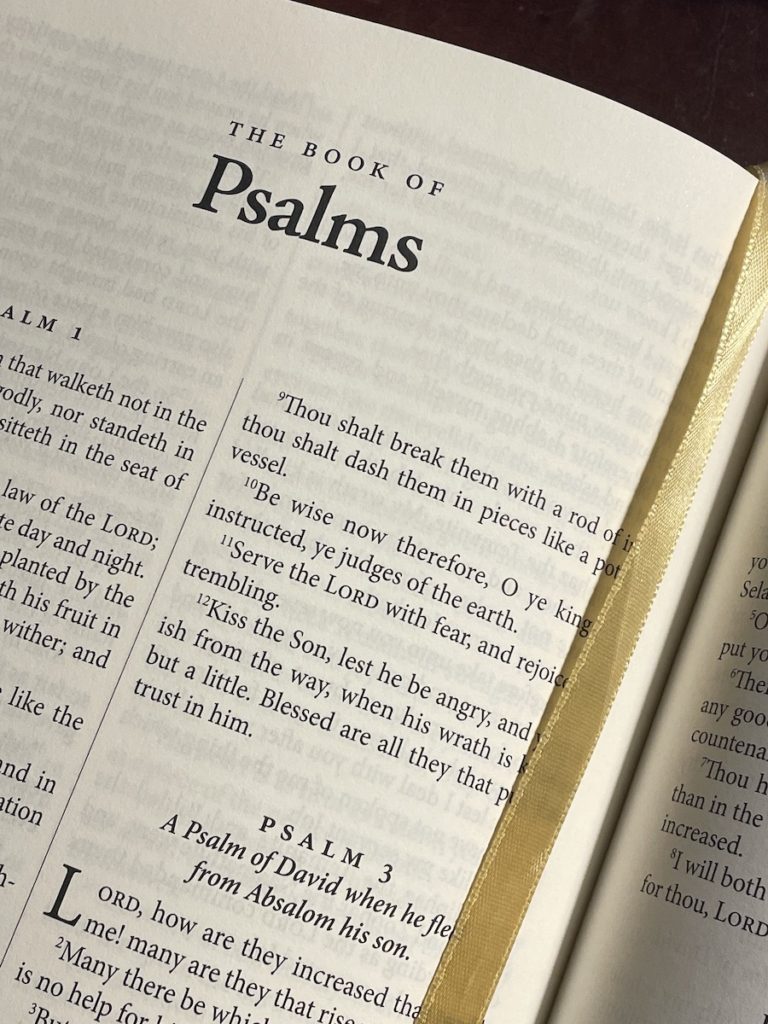
Psalm 69
Psalm 69:10, Chastened my soul with fasting. (See notes at Lev 23:26.) The natural soul of man—that is, one’s mind, will and emotions—is like an unruly and totally self-focused child, or a rebellious and petulant teenager; it is stubborn, prideful and wants its own way and fusses when this is denied. The act of fasting, which is the practice of self-denial through the deprivation food, helps to bring the soul under the control of the spirit within a person and, in turn, helps to bring one’s Spirit into line with the Spirit of Elohim.

Psalm 69:22, Table become a snare. The word table (Heb. shoolkan) derived from the Hebrew word for a skin or leather mat. Thus in ancient times, a table was either that or a low stool about 14 inches high where people sat on the floor around this stool, or it was a leather skin or mat that was spread on the floor (like a picnic blanket) and the food was spread on it. When David prays that the table of his enemies would become a snare to them, David’s meaning would be, “Let their feet become entangled in it, as it is spread on the ground” (Manners and Customs of Bible Lands, p. 57).
Psalm 69:28, Book of life. From this verse and Exod 32:32 comes the idea that every person who was ever born had their name written Elohim’s “Book of Life” until, because of unrepented sin, the Almighty is forced to blot them out. Our names may or may not remain in this book depending on our actions and the choices we make in this physical life. Our time on earth is merely a period of testing, a proving ground and a classroom. Will we pass the test and overcome the world, the flesh and devil and subsequently be rewarded with heaven’s gift of salvation resulting in eternal life and inclusion in the kingdom of Elohim as immortal sons and daughters of our Creator, or will we fail to meet the requirements, fail to pass the test and have our names and our lives blotted out of existence forever? The choice is ours.
Psalm 70
Psalm 70:2–3, That seek after my soul. The more are enemies persecute us, the more we should seek Elohim and the sweeter should be his salvation (Heb. Yeshua, see v. 4) to us. It only follows that the longer we spend in the cold rain, soaked to the skin and chilled to the bone, the greater will be our appreciation of a hot shower or a warm fire.
Psalm 70:4, Love your salvation (Heb. Yeshua). Those who are in love with Yeshua the Messiah will continually be saying, “Let Elohim be magnified (Heb. gadal). Gadal means “to make large, increase or boast.” The more we love Yeshua, Elohim’s salvation, the more we will be continually loving, praising and worshipping Elohim.
Psalm 70:5, Poor and needy. Not until we recognize our personal spiritual poverty and neediness will we seek, much less appreciate, the salvation of YHVH. The problem is that the majority of people, due to human pride and complacency, fail or even refuse to admit their spiritual lack and, therefore, cannot or will not receive the help, deliverance or “salvation” (v. 4; Heb. Yeshua) of Elohim.
Psalm 71
Psalm 71:3, The commandment to save me. YHVH has given us his Torah commandments to protect and guard us, and to preserve and deliver us from evil. They are like guardrails on the road of life to protect us from veering off of the road and over the cliff to our doom. Once redeemed by the blood of Yeshua, YHVH’s Torah shows us how to love Elohim with all of our being and our neighbor as ourself. It also shows us how to walk a sanctified life and remain in a redeemed state as we progress through the spiritual wilderness of this physical life en route to the Promised Land of our eternal inheritance in the kingdom of Elohim.
Psalm 71:4, Cruel [Heb. chametz] man [or leavened man]. The Hebrew word chamets means “pungent, sour or fermented” and is the one of the words used to describe leavened bread. Therefore, it is a biblical metaphor for sin. Other words in this verse that describe those individuals who are the enemy of the saints include the wicked (i.e., the morally wrong] and the unrighteous (i.e., the morally distorted).
Psalm 71:20, Shall revive me again…bring me up from the depths of the earth. This is one of several psalms that prophesy of a bodily resurrection of the righteous dead. (Also see Pss 17:15; 50:4–5; 73:24 cp. Job 14:15; 19:26–27.)
Psalm 71:21, You shall increase my greatness. What could be greater and more comforting than eternal life as a glorified son and daughter of Elohim?
Psalm 71:22–23, I will praise you. What could be a greater source of praise to the Almighty than his granting his saints the gift of eternal life?
Psalm 71:24, They are confounded. What could be a greater victory over all of one’s enemies than for the Creator of the universe to grant one eternal life and inclusion in his everlasting kingdom?










